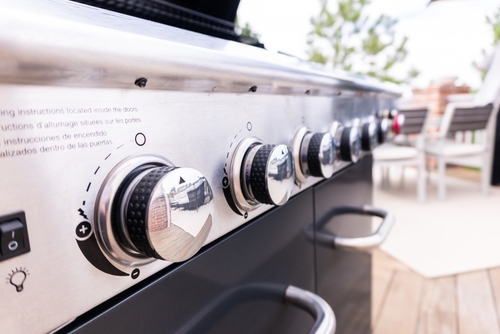Always have the propane you need for grilling with Boehlke Bottled Gas!
 The calendar may say it’s officially fall, but tailgaters and grilling enthusiasts know that it’s still grilling season! However, nothing puts a damper on a perfect cookout or tailgating party like a grill tank that won’t cooperate.
The calendar may say it’s officially fall, but tailgaters and grilling enthusiasts know that it’s still grilling season! However, nothing puts a damper on a perfect cookout or tailgating party like a grill tank that won’t cooperate.
Boehlke Bottled Gas is here to walk you through troubleshooting common grill tank issues, so you can keep the good times rolling. Whether you’re a seasoned grilling enthusiast or a homeowner just getting into grilling, this post will have something for you.
With Boehlke Bottled Gas offering convenient propane grill tank exchange locations all over Southeastern Wisconsin, you’ll be back to grilling in no time. Boehlke Bottled Gas ensures that all tanks are thoroughly inspected and maintained, providing you with safe and reliable propane.
How to know when your grill tank is running low
One of the most common issues is running out of propane mid-cookout. It’s frustrating, but easily avoidable.
Most grill tanks are designed to hold about 20 pounds of propane. Weighing the tank can give you a good idea of how much gas is left. A full tank typically weighs around 37 pounds, while an empty one is about 17 pounds.
Investing in a propane gauge can save a lot of headache. These devices attach to your tank and provide an easy-to-read indicator of propane levels, so you always know when it’s time for a refill.
If you don’t have a gauge, try the water test. Pour warm water down the side of the tank and feel for a cool spot. The propane absorbs the heat, so the cool line indicates the level of gas remaining.
Spotting and fixing grill tank leaks
Propane leaks can be dangerous, but they’re relatively simple to detect and fix.
Mix a little soap with water and spray or brush it onto the tank’s connections. If you see bubbles forming, you’ve got a leak. This method is both effective and safe for detecting leaks.
Often, a leak is due to a loose connection. Make sure all connections are snug but not over-tightened. Over-tightening can damage the fittings and create more problems.
If tightening doesn’t do the trick, you may need to replace faulty hoses or valves. It’s crucial to use parts designed specifically for propane tanks to ensure safety and compatibility.
My grill won’t ignite. What do I do?
A non-igniting grill can be a real bummer, but there are a few likely culprits.
Check the ignition battery: Many modern grills use battery-powered igniters. If your grill isn’t lighting, the first step is to check and replace the battery if needed.
Inspect the burners: Clogged burners can also prevent ignition. Remove the burners and clean them thoroughly with a brush to ensure propane can flow freely.
Examine the regulator: The regulator controls the flow of gas from the tank to the grill. A malfunctioning regulator can cause ignition problems. Try resetting it by turning off the gas, disconnecting the regulator, and reconnecting it after a few minutes.
How to maintain an optimal grill flame
An uneven or weak flame can result in poorly grilled food. Here’s how to keep it strong and steady.
Adjust the air shutter: The air shutter controls the air-to-gas ratio. Adjusting it can help achieve a more consistent flame. Consult your grill’s manual for specific instructions on adjusting the air shutter.
Clean the burner ports: Over time, the burner ports can become clogged with grease and debris. Use a small wire or a paper clip to clean out the ports and improve gas flow.
Check for obstructions: Sometimes, insects or spiders can nest in the burner tubes, causing blockages. Regularly inspecting and cleaning these areas can prevent obstructions and ensure a smooth gas flow.
How do I safely store my grill tank?
Proper storage is essential for the longevity and safety of your propane tank.
Store your tank in a cool, well-ventilated area away from direct sunlight. Excessive heat can increase pressure inside the tank, posing a risk of explosion.
Always store the tank in an upright position. Laying it on its side can cause leaks and other hazardous situations.
Store the tank outdoors and away from living spaces. Do not store tanks in garages, sheds, carports, or sun porches.
If you’re in Southeastern Wisconsin, Boehlke Bottled Gas has you covered with convenient propane grill tank exchange locations. Just don’t forget to pick up the brats!

